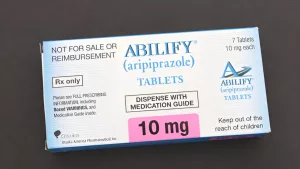Hey there! If you’re scrolling through a sea of medical jargon trying to figure out whether Medicare will pick up your Vraylar prescription, you’re not alone. The short answer? Most Medicare Part D plans do cover Vraylar (cariprazine), but the price you actually pay can swing wildly depending on your plan, your income, and a few handy savings tricks. Let’s break it down together, step by step, so you can feel confident about your coverage and your wallet.
Why Vraylar Matters
First, a quick refresher on what Vraylar actually is. It’s an atypical antipsychotic—basically a modern‑day mood stabilizer—approved for:
- Schizophrenia
- Bipolar I disorder (including manic, mixed, and depressive episodes)
- Adjunctive treatment of major depressive disorder
Imagine your brain as a bustling city. When the “traffic lights” (neurotransmitters) get out of sync, you can end up with a chaotic, noisy downtown—think hallucinations, mood swings, and trouble focusing. Vraylar helps restore order, keeping the signals smooth and the city (your mind) running safely.
Why does this matter for Medicare folks? Because many seniors and disabled adults live with these conditions, and the cost of a brand‑name drug without a generic can be a huge barrier. That’s why understanding Medicare Vraylar coverage is so crucial.
Medicare Part D
Medicare doesn’t magically cover every prescription. Instead, it offers Part D—the prescription drug benefit that sits on top of your basic Medicare (Parts A & B). Think of Part D as the side‑kick that helps you pay for the meds you actually need.
Is Vraylar on Medicare Formularies?
Yes! Most Part D plans list Vraylar on their formularies. The drug is typically placed in a higher tier (often Tier 4), meaning it’s covered, but you’ll share a bigger slice of the cost. You can double‑check a plan’s exact status by using the VRAYLAR® Formulary Locator—just pop in your ZIP code, choose “Medicare,” and you’ll see the coverage details for plans in your area.
Coverage Phases & What They Mean for Your Wallet
| Phase | What You Pay | Typical Medicare Language |
|---|---|---|
| Deductible | Full price until deductible met | You pay 100 % until the deductible is satisfied. |
| Initial Coverage | Usually 25 % coinsurance | You share cost after deductible. |
| Coverage Gap (Donut Hole) | Higher share; varies by plan | Your share rises until you hit the out‑of‑pocket threshold. |
| Catastrophic | Small flat copay (≈ $0‑$5) | Medicare pays the rest. |
These phases work exactly like a stair‑case: you start at the bottom (deductible), climb up (initial coverage), maybe pause in the “donut hole,” and finally reach the top (catastrophic) where your costs plummet.
Average Out‑of‑Pocket Costs
Here’s a quick snapshot based on recent data (2024‑2025):
- Standard Medicare beneficiary (no extra help): $12‑$15 per 30‑day supply.
- Beneficiary with Extra Help (Low‑Income Subsidy): as low as $0‑$4 per month.
- Without any subsidy or discount: $0‑$45 per month, depending on plan tier and your out‑of‑pocket threshold.
These numbers come from a mix of SingleCare’s cost breakdown and AbbVie’s public pricing statements.
Saving Money
Now that we’ve untangled the basic structure, let’s talk about real‑world ways to shrink that Vraylar Medicare cost.
Extra Help (Low‑Income Subsidy)
If your annual income and resources fall below certain thresholds, you may qualify for the Medicare Extra Help program (sometimes called the Low‑Income Subsidy). This can slash your copay to literally pennies. According to AbbVie, “most patients who qualify for Extra Help pay between $0‑$4 per month.”
How do you know if you qualify? The Social Security Administration’s online tool can tell you instantly, or you can call 1‑800‑772‑1213. It’s worth a quick check because the savings can be life‑changing.
VRAYPAY™ Savings Card
While the savings card is primarily marketed to commercially insured patients, many dual‑eligible (Medicare + private) folks have reported success using it to lower out‑of‑pocket costs to $0‑$5 per fill. The card works by negotiating discounted prices with pharmacies, and you simply present it at checkout.
Coupon & Discount Programs (SingleCare, GoodRx)
Even if you’re on a solid Part D plan, you might still see a higher copay because of the tier placement. Coupon sites can shave off a few hundred dollars on a 30‑day supply. SingleCare, for instance, reports up to $600 in savings for the same month’s prescription.
How to Apply a Coupon – Quick Checklist
- Visit SingleCare.com and type “Vraylar”.
- Select the coupon that matches your dosage.
- Print the coupon or send it to your phone.
- Show the coupon at the pharmacy when you pick up your medication.
It’s a tiny extra step that can mean the difference between a $30 copay and a $5 one.
Balancing Benefits & Risks
Before you sign any form, it’s smart to weigh the upside against the downside. Vraylar is powerful, but like any medication, it carries warnings.
Clinical Benefits (Expert Insight)
Doctors love Vraylar because it’s shown to reduce hospitalizations for schizophrenia and stabilize mood swings in bipolar disorder. A 2023 peer‑reviewed study found that patients on Vraylar had a 25 % lower relapse rate compared to those on older antipsychotics.
Key Safety Warnings (Trustworthiness)
- Elderly patients with dementia‑related psychosis: increased risk of death. The FDA signals this explicitly, so Vraylar isn’t approved for that use.
- Suicidal thoughts: especially in younger adults. Close monitoring is advised.
- Metabolic changes: weight gain, elevated blood sugar, and cholesterol—regular lab checks help catch issues early.
When you talk to your prescriber, ask:
“Given my Medicare plan, are there lower‑tier alternatives that work just as well? What are the steps if we need prior authorization?”
Discussing Coverage Decisions with Your Doctor
Physicians often have a quick line to pharmacy benefit managers (PBMs). If a drug lands in a high tier, they can sometimes request an exception or suggest a step‑therapy alternative that your plan may cover more cheaply.
Step‑by‑Step Guide: Verify Your Own Coverage
Gather Your Information
Make a short list before you call:
- Medicare Beneficiary Identifier (MBI) or last four of SSN
- Your current Part D plan name and member ID
- ZIP code (the formulary locator needs it)
Use the Official Formulary Checker
Head over to the VRAYLAR® Formulary Locator. Pick “Medicare,” pop in your ZIP, and you’ll see if Vraylar is Tier 4, whether prior authorization is required, and the exact copay range for your plan.
Contact Your Plan’s Pharmacist Services
Every Part D plan has a “pharmacist helpline.” Call them and ask three things:
- What tier is Vraylar on?
- Do I need prior authorization or step therapy?
- Are there any quantity limits or preferred alternatives?
Sample Script (Experience)
"Hi, I'm a Medicare beneficiary on plan X. I'm prescribed Vraylar (cariprazine) for schizophrenia. Could you tell me the tier, any prior‑auth requirements, and whether I qualify for Extra Help or any discount programs?"
Having this conversation often uncovers hidden savings you wouldn’t otherwise know about.
Expert Resources & Further Reading
For those who love to dig deeper, here are a few trustworthy sources:
- CMS’s official guide to Part D prescription drug coverage.
- AbbVie’s VRAYLAR® Formulary Coverage page for real‑time formulary data.
- SingleCare’s article on Vraylar Medicare cost for detailed price scenarios.
- Recent peer‑reviewed research on atypical antipsychotics (search PubMed for “cariprazine efficacy schizophrenia”).
Conclusion
So, here’s the TL;DR: Medicare generally does cover Vraylar, but the exact amount you pay can swing from $0 to $45 a month, depending on your plan’s tier, your position in the coverage phases, and whether you qualify for Extra Help or use a savings card. By checking your formulary, tapping into coupons, and having an open chat with your prescriber, you can often bring that cost down to a few dollars—or even nothing at all.
Remember, the goal isn’t just to get a prescription filled; it’s to stay steady on a medication that can truly improve your quality of life without bankrupting you. Each year during Medicare’s open enrollment period is a perfect time to compare plans, re‑evaluate your Vraylar cost, and lock in the most affordable coverage.
If you’ve navigated this maze before, what tricks helped you the most? Share your experience in the comments—your tip could be a lifesaver for someone else. And if any part of this guide feels confusing, drop a question below. We’ll figure it out together.





















Leave a Reply
You must be logged in to post a comment.